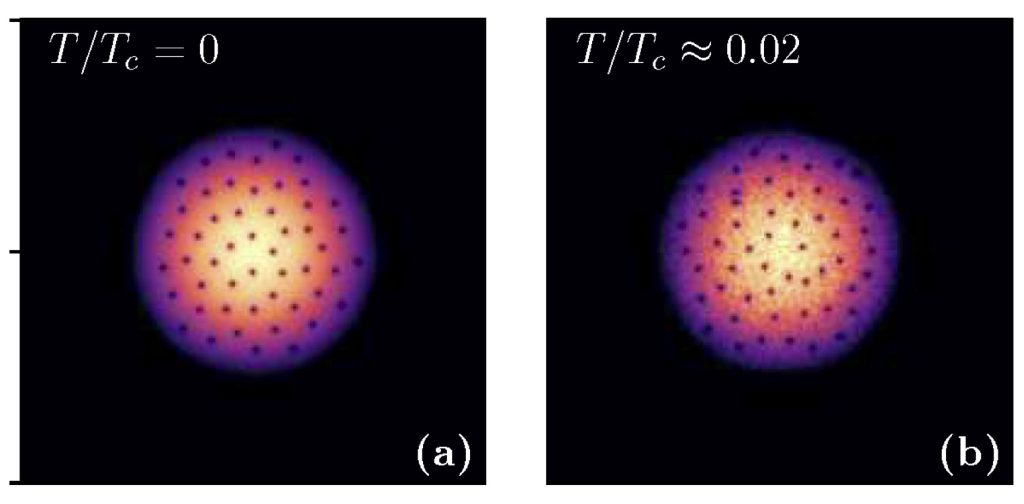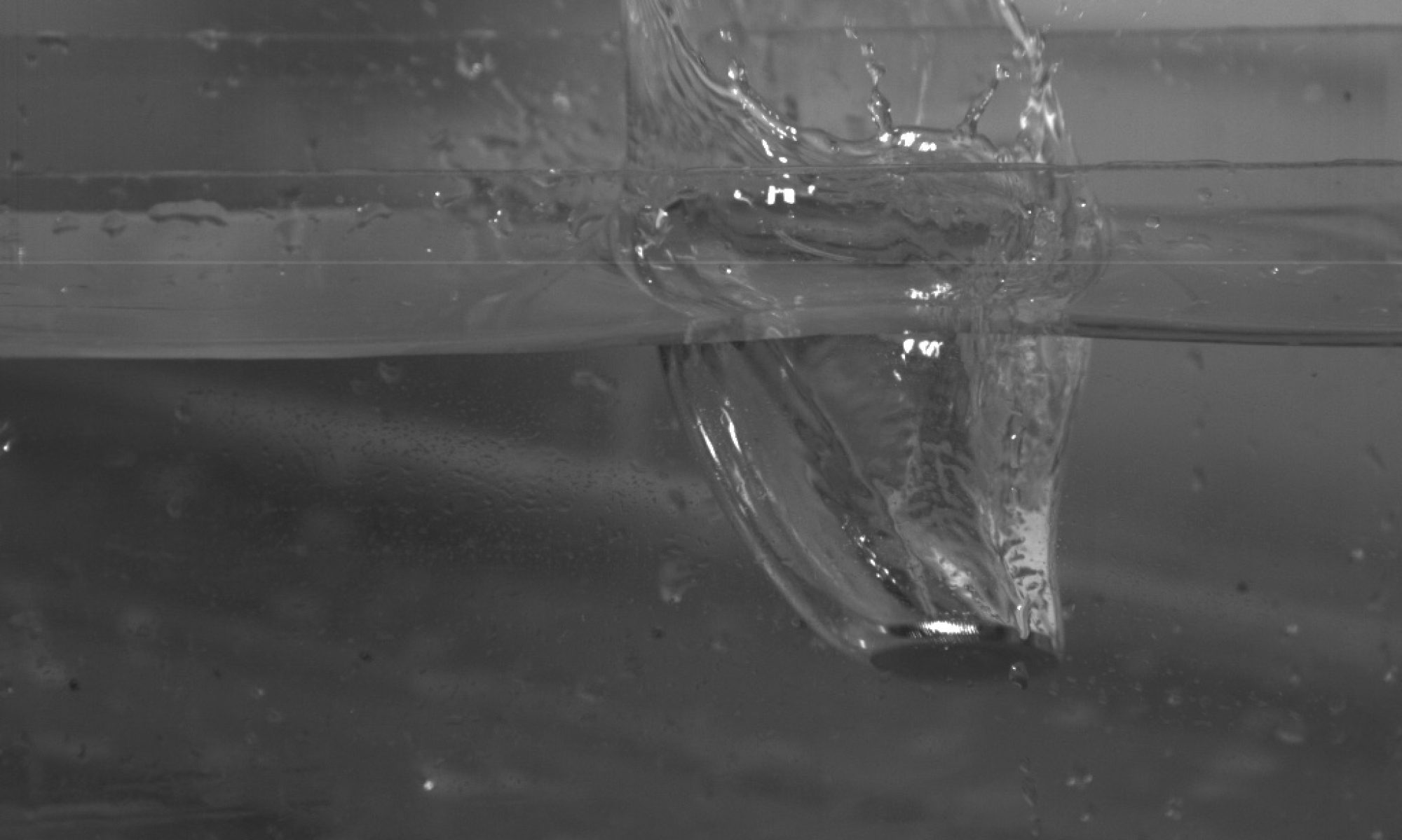Generation of droplets: In the geophysical turbulence laboratory, under the supervision of Pablo Cobelli, we also design and develop systems to generate droplets of controlled size. These are used in multiple experiments, to study interaction of droplets with surface waves, as well as for industrial applications.
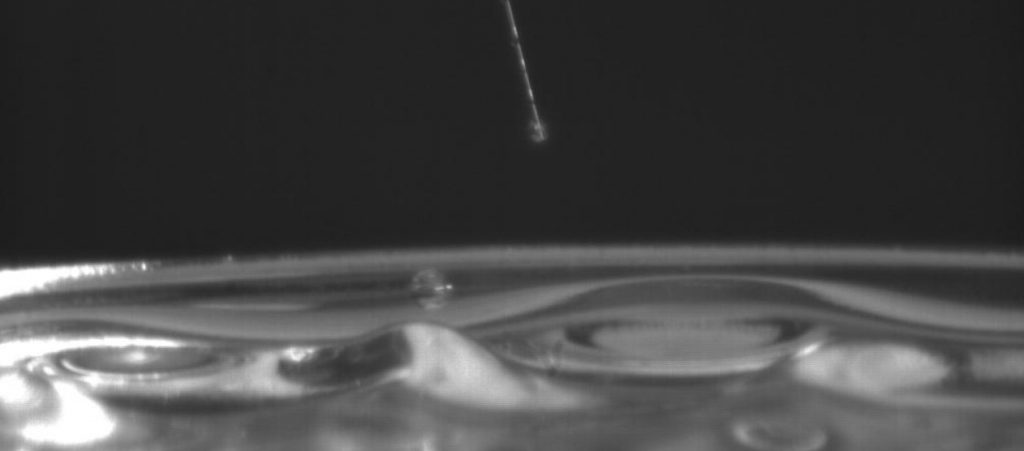
Flow-particle interactions: In the laboratory Pablo Cobelli studies bouncing droplets, the interaction of surface waves with obstacles with applications in the study of metamaterials, the interaction of surface waves with bottom topography and deformation, soft interfaces, propagation of waves in foams, transport of particles by surface deformations in a liquid, and multi-phase turbulent flows.
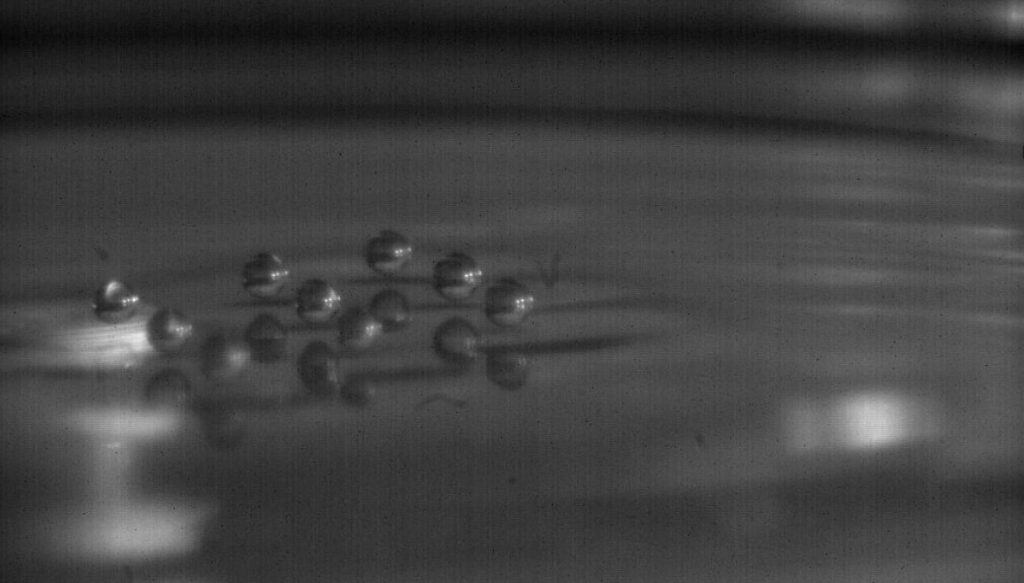
Instrumented particles: To measure Lagrangian acceleration of particles in surface wave turbulence we are also developing instrumented particles that can transmit or record acceleration and particle orientation as a function of time. Such particles can be used for the characterization of Lagrangian properties of wave turbulence, as found in the ocean and in laboratory experiments.
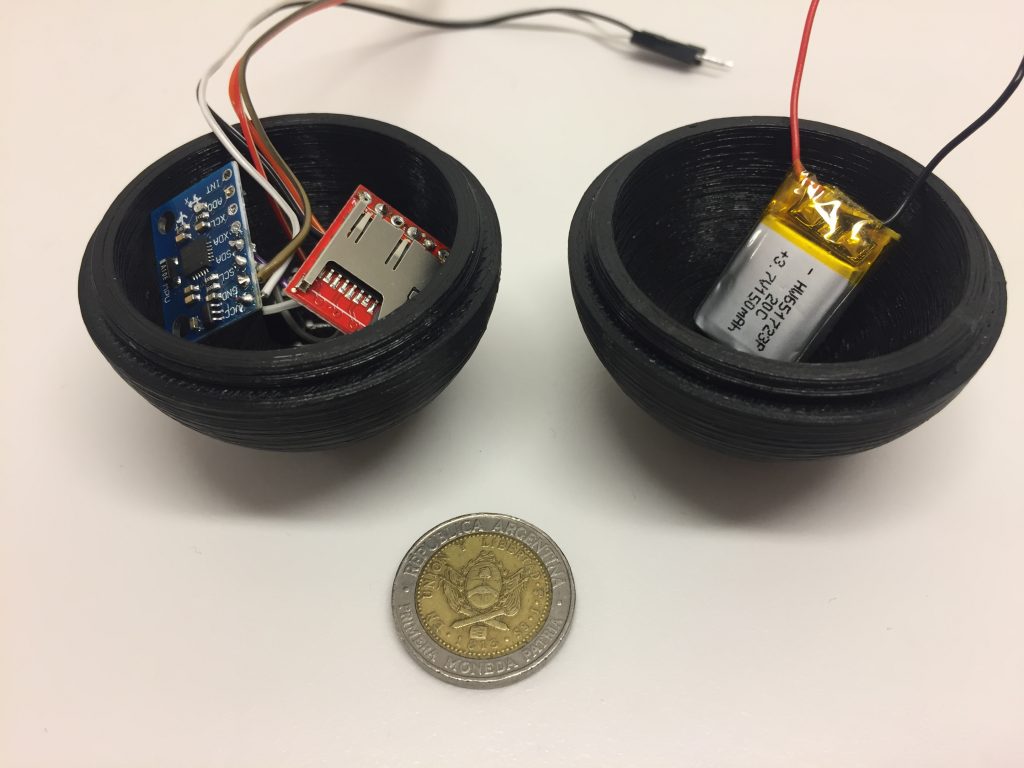
Quantum turbulence: Quantum turbulence is the disorganized flow state observed in superfluids and Bose-Einstein condensates. Unlike classical flows, quantum flows have no viscosity, and vorticity is concentrated along topological line defects with quantized circulation. While similarities between classical and quantum turbulence exist, there are also important differences. In our group we study quantum turbulence in numerical simulations, solving the Gross-Pitaevskii equation, as well as other models for finite temperature condensates such as truncated equations and the Stochastic Ginzburg-Landau equations. Recently we studied the role of Kelvin waves in quantum turbulence, we considered the evolution of helicity in quantum knots, dual cascades and dissipation mechanism in helical quantum turbulence (using numerical simulations with up to 20483 grid points), and finite temperature effects in helical quantum turbulence (using simulations with 40963 grid points).
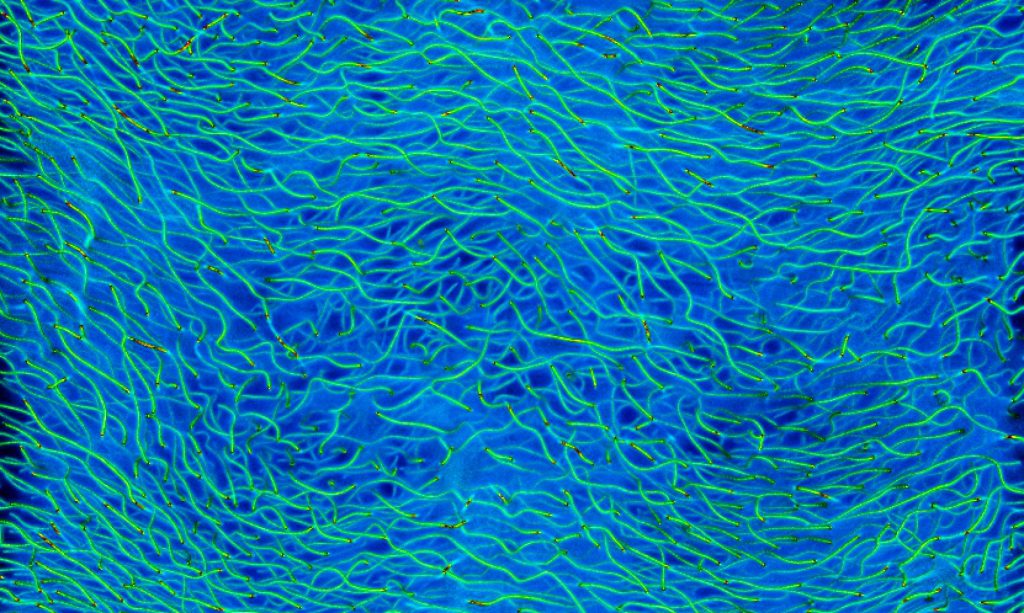
Quantum fluids and Bose-Einstein condensates: We study thermodynamic and out-of equilibrium properties of quantum fluids, with a special emphasis on theoretical and numerical descriptions based on the non-linear Schrödinger equation. These studies include the dynamics of rotating Bose-Einstein condensates, applications of mean field descriptions of quantum fluids to superconductivity, and the thermodynamics of quantum thermal machines.
